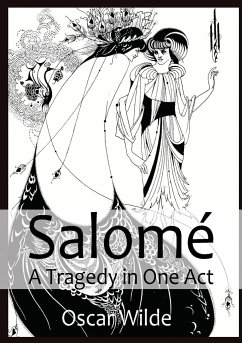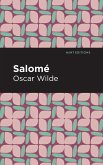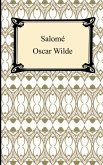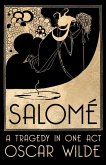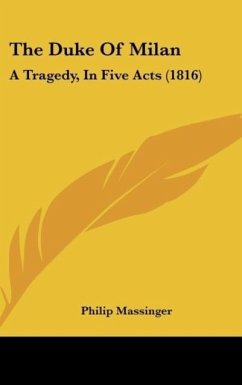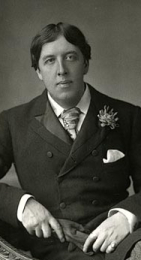Salomé A Tragedy in One Act By Oscar Wilde Salome (French: Salomé) is a tragedy by Oscar Wilde. The original 1891 version of the play was in French. Three years later an English translation was published. The play tells in one act the Biblical story of Salome, stepdaughter of the tetrarch Herod Antipas, who, to her stepfather's dismay but to the delight of her mother Herodias, requests the head of Jokanaan (John the Baptist) on a silver platter as a reward for dancing the dance of the seven veils.Herod Antipas, Tetrarch of JudeaJokanaan, the ProphetThe young Syrian, Captain of the guardTigellinus, a young RomanA CappadocianA NubianFirst soldierSecond soldierThe page of HerodiasJews, Nazarenes, etc.A slaveNaaman, the ExecutionerHerodias, Wife of the TetrarchSalomé, daughter of HerodiasThe slaves of SaloméRehearsals for the play's debut on the London stage, for inclusion in Sarah Bernhardt's London season, began in 1892, but were halted when the Lord Chamberlain's licensor of plays banned Salomé on the basis that it was illegal to depict Biblical characters on the stage. The play was first published in French in February 1893, and an English translation, with illustrations by Aubrey Beardsley, in February 1894. On the Dedication page, Wilde indicated that his lover Lord Alfred Douglas was the translator. In fact, Wilde and Douglas had quarrelled over the latter's translation of the text which had been nothing short of disastrous given his poor mastery of French - though Douglas claimed that the errors were really in Wilde's original play. Beardsley and the publisher John Lane got drawn in when they sided with Wilde. In a gesture of reconciliation, Wilde did the work himself but dedicated Douglas as the translator rather than having them sharing their names on the title-page. Douglas compared a dedication to sharing the title-page as "the difference between a tribute of admiration from an artist and a receipt from a tradesman."The play was eventually premiered on 11 February 1896, while Wilde was in prison, in Paris at the Comédie-Parisienne (at the Théâtre de l'¿uvre in some accounts) in a staging by Lugné-Poe's theatre group, the Théâtre de l'¿uvre. In Pall Mall Gazette of 29 June 1892 Wilde explained, why he had written Salomé in French:"I have one instrument that I know I can command, and that is the English language. There was another instrument to which I had listened all my life, and I wanted once to touch this new instrument to see whether I could make any beautiful thing out of it.
Hinweis: Dieser Artikel kann nur an eine deutsche Lieferadresse ausgeliefert werden.
Hinweis: Dieser Artikel kann nur an eine deutsche Lieferadresse ausgeliefert werden.

